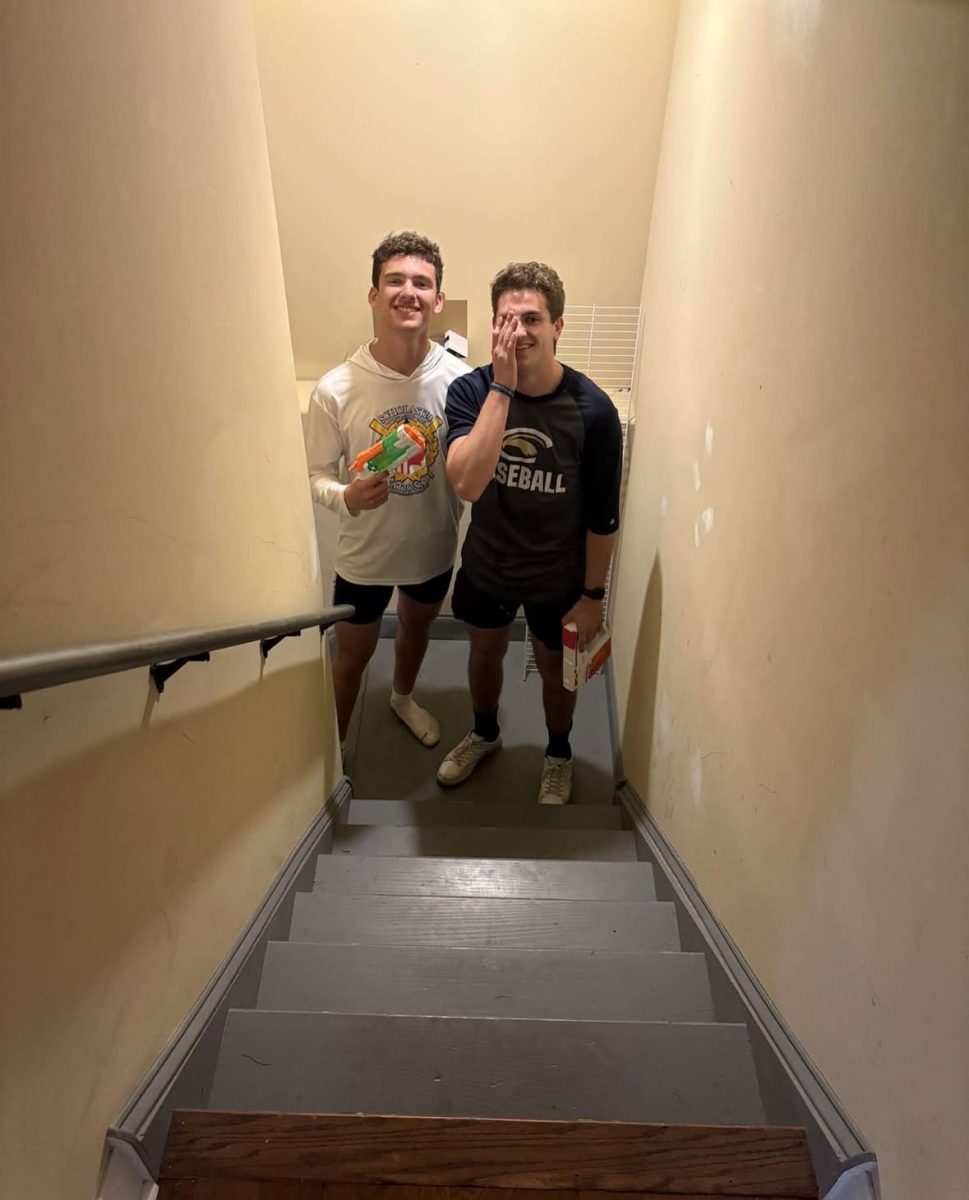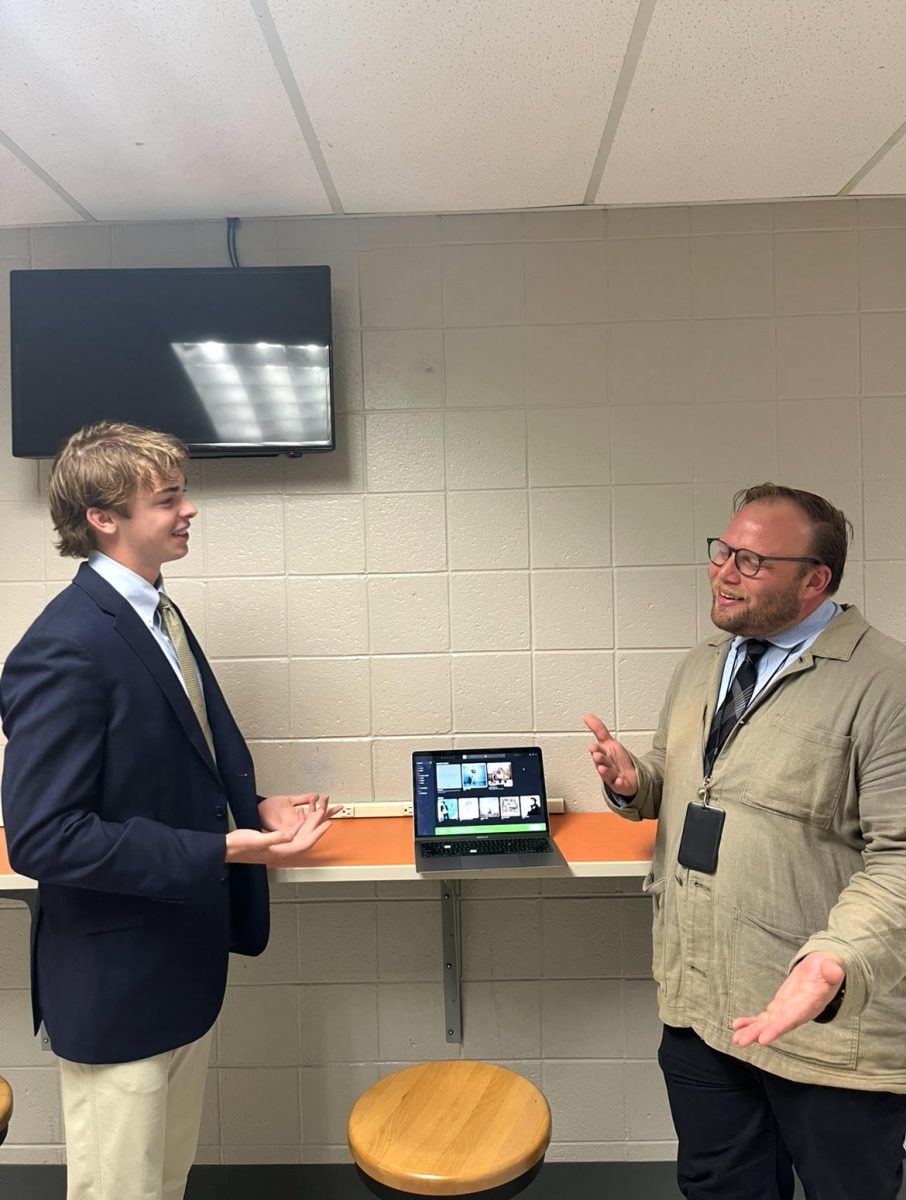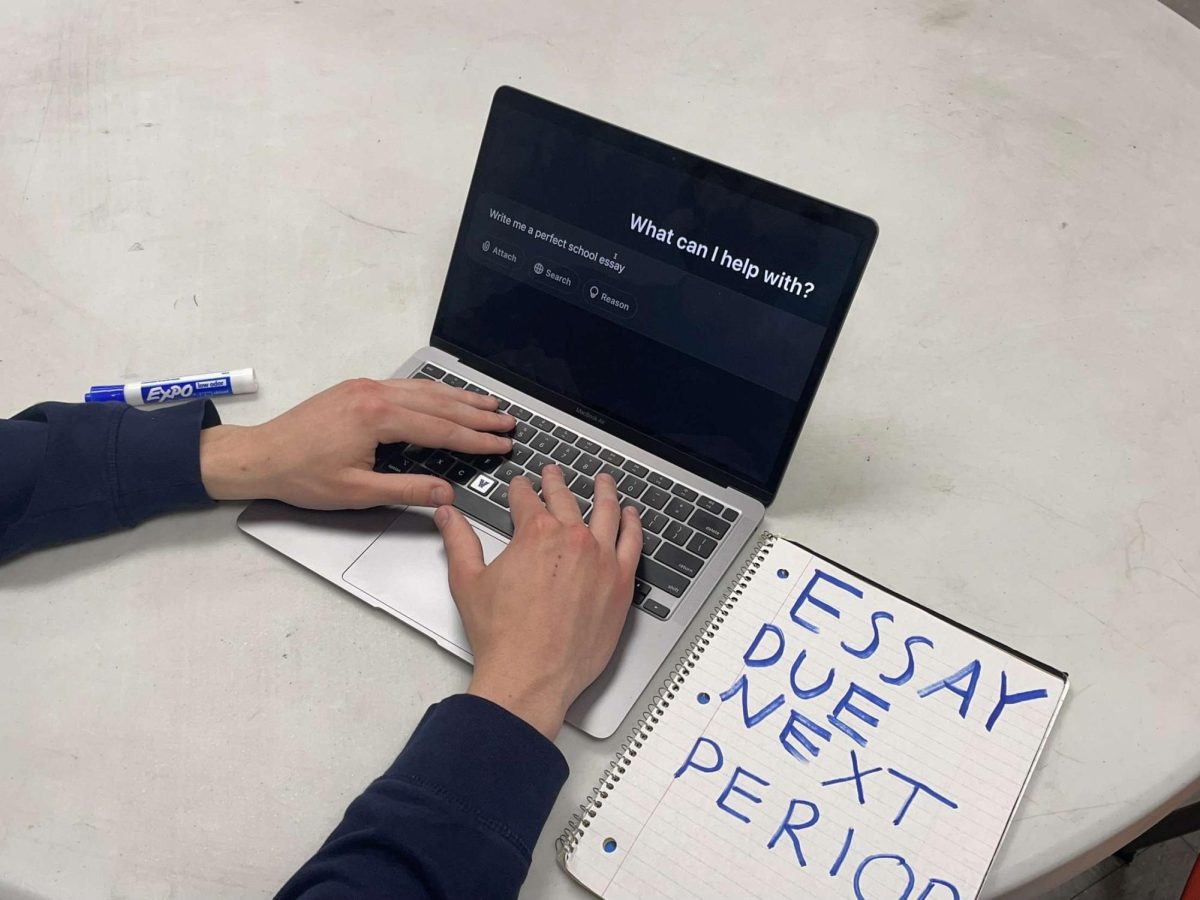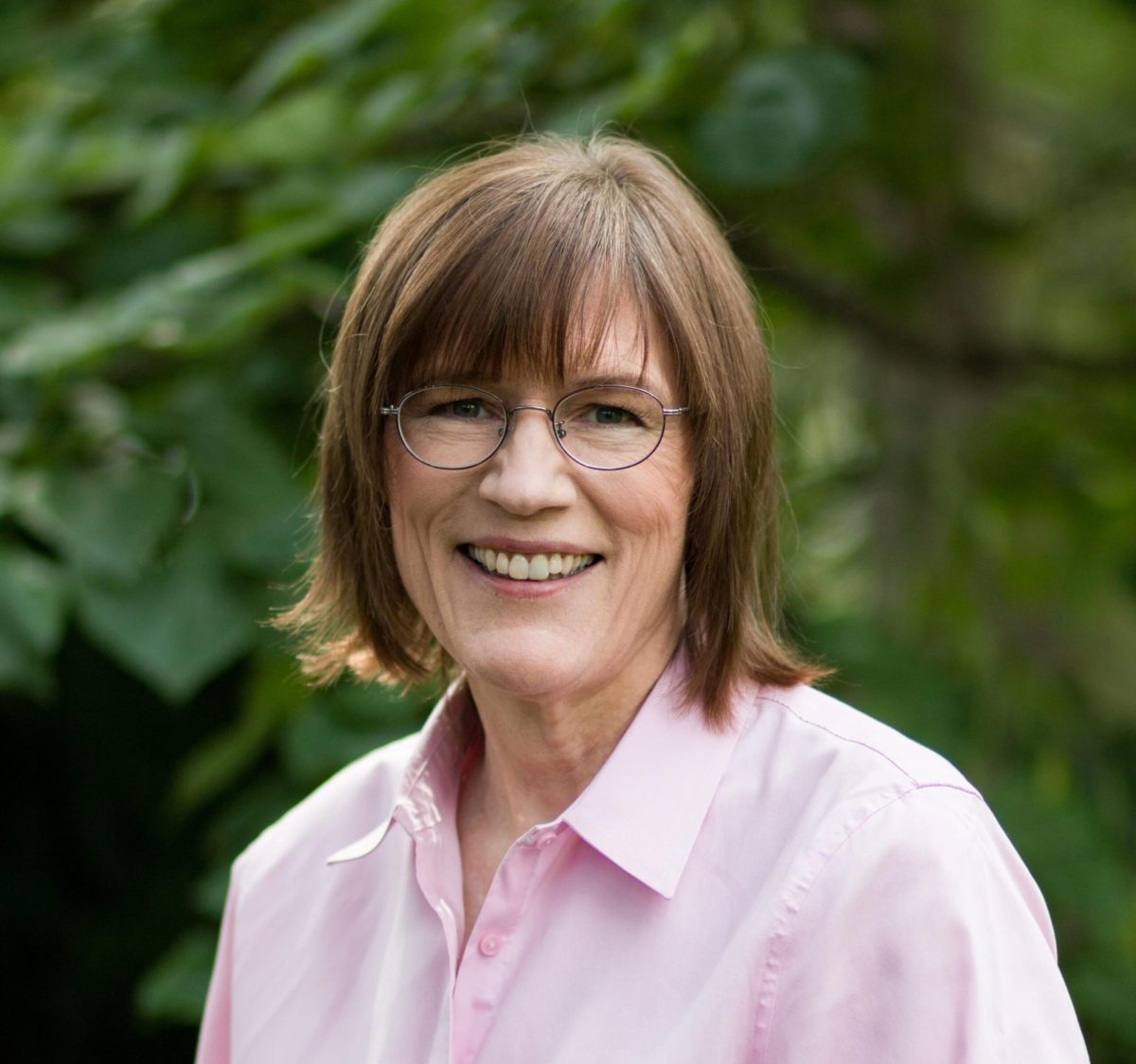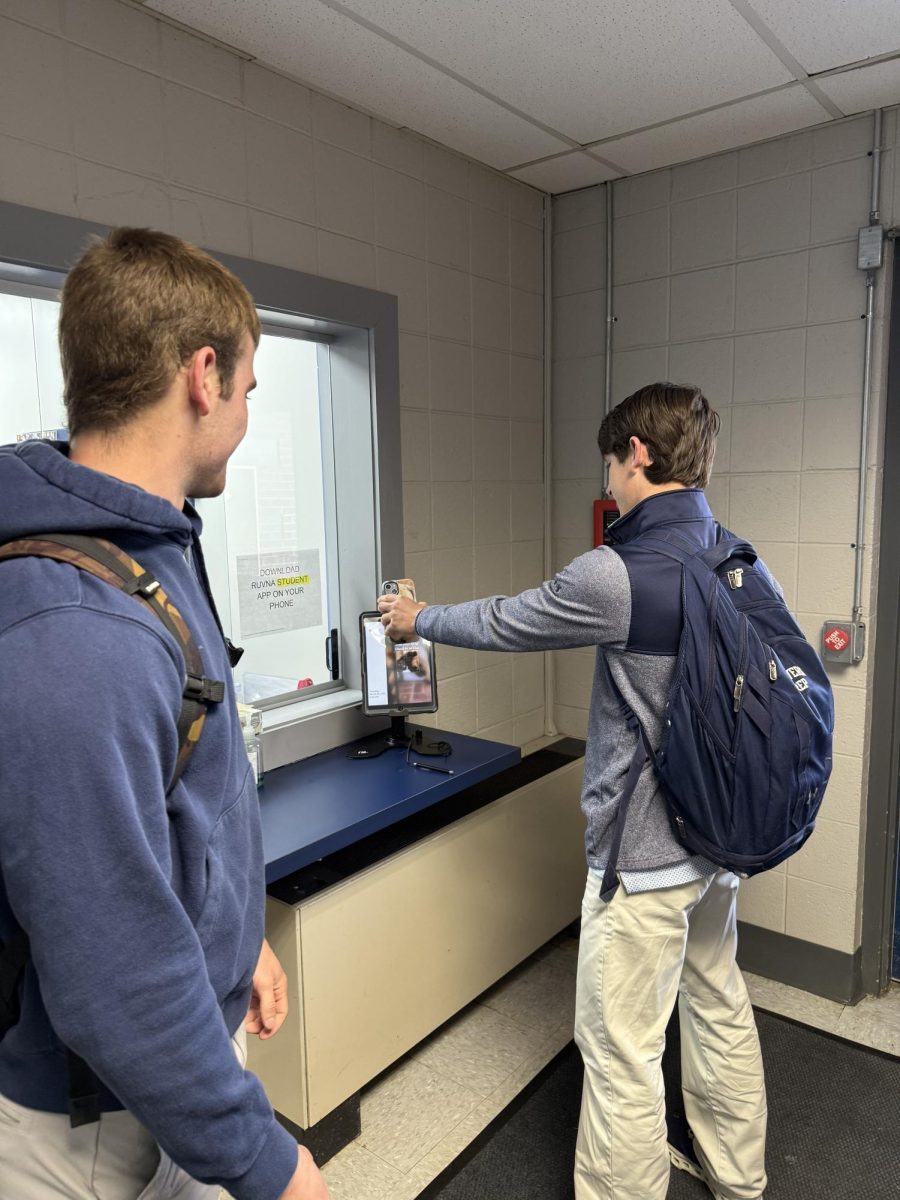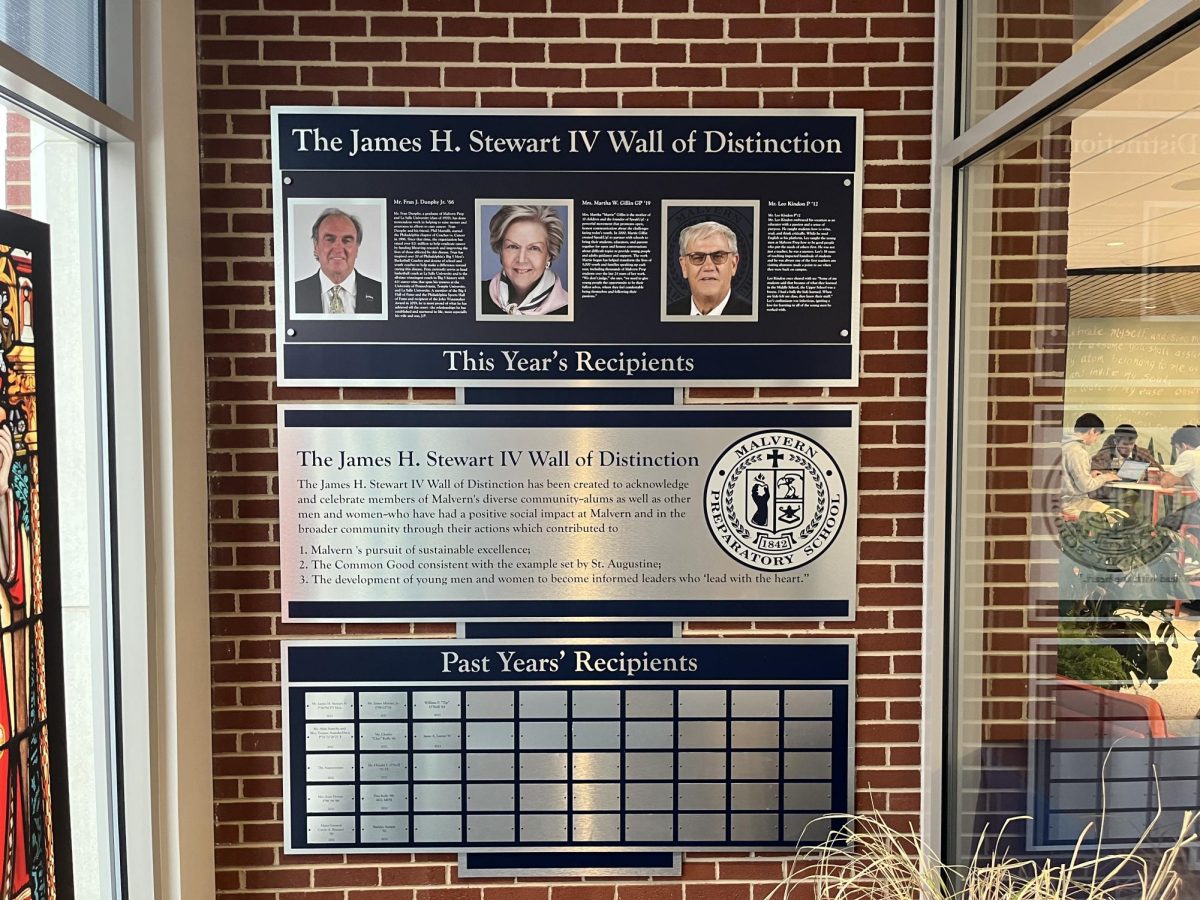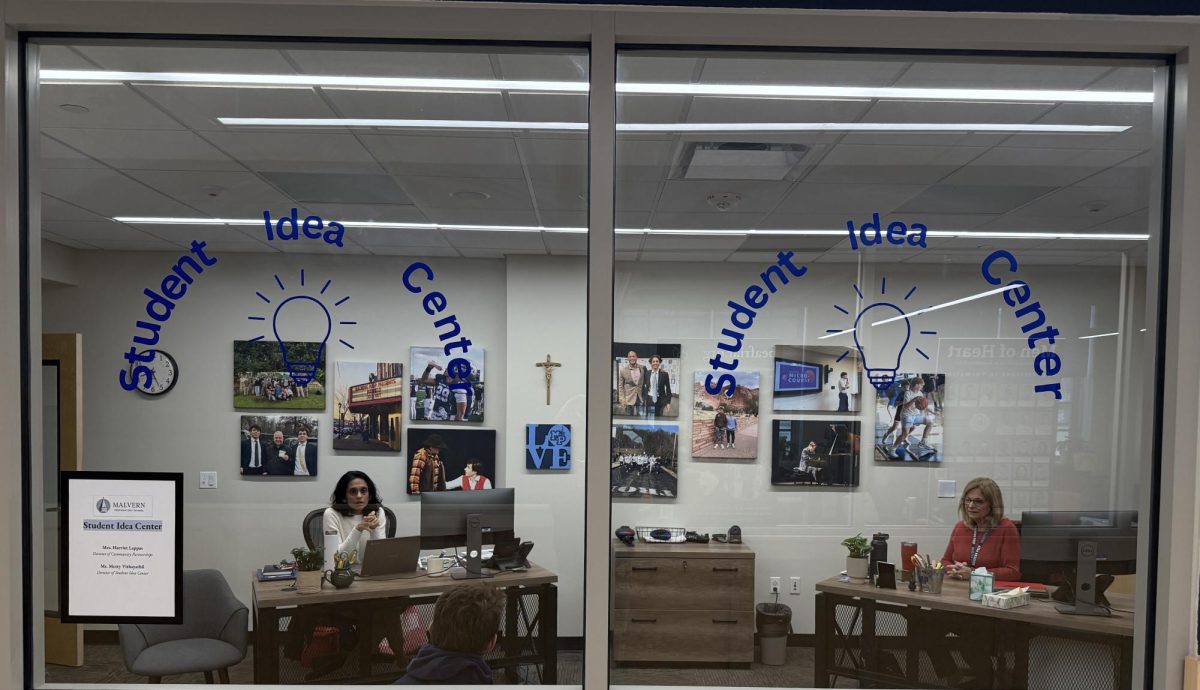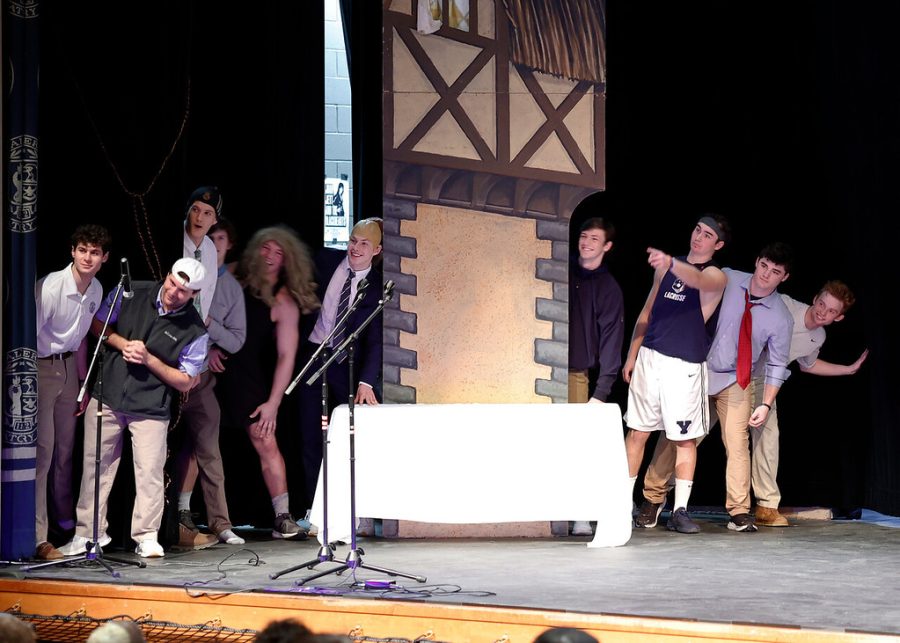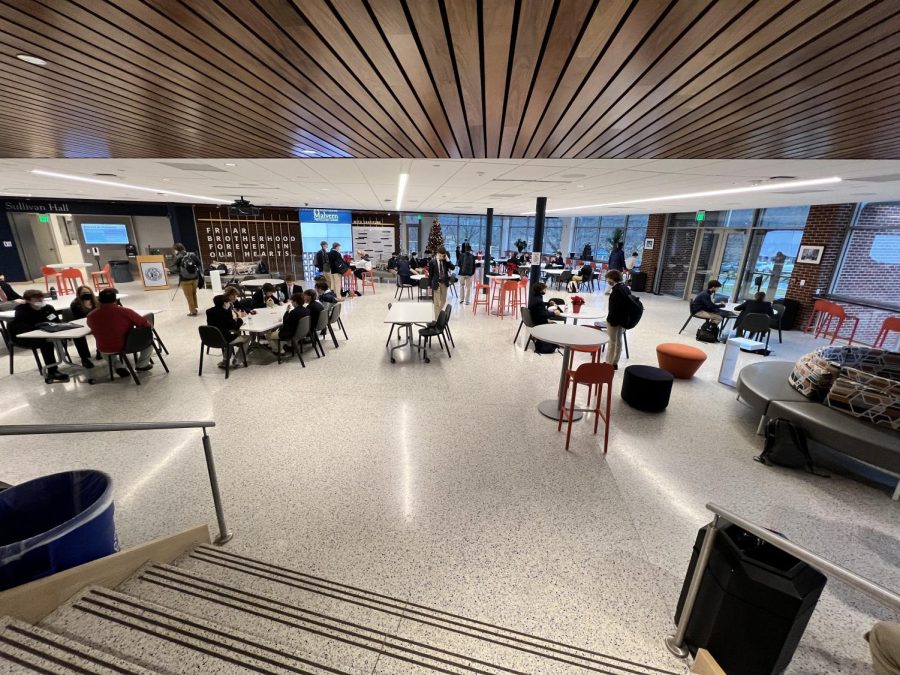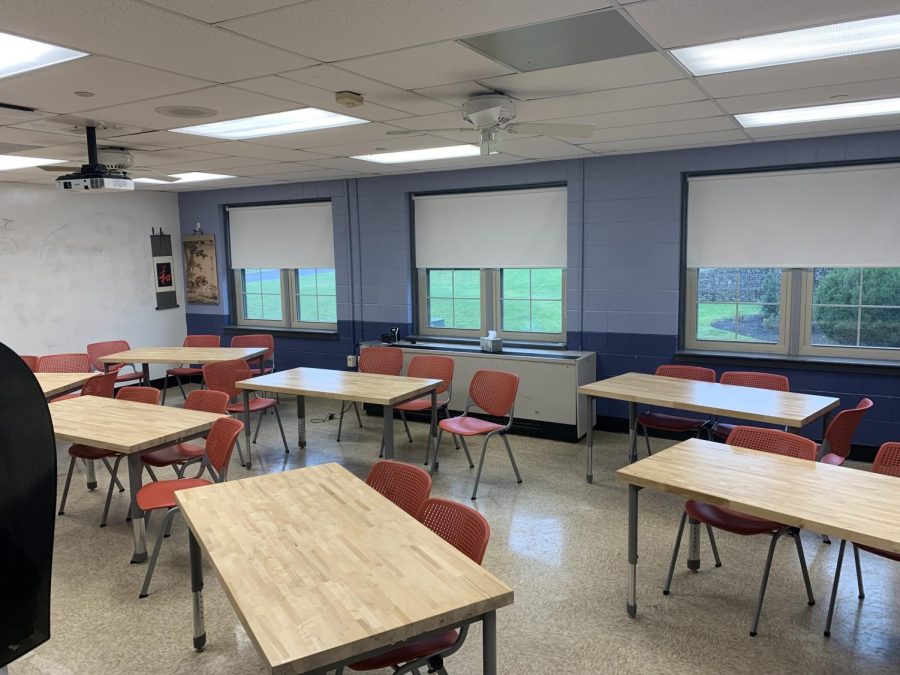The Editorial Board takes a look at how seniors face their final year, and what can be done to make the most of it.
 It’s 3:10 on the final day of the second quarter. Campus is abuzz, filled with students trying to hand in final assignments, finish up tests, and convince teachers just how deserving they are of that A+.
It’s 3:10 on the final day of the second quarter. Campus is abuzz, filled with students trying to hand in final assignments, finish up tests, and convince teachers just how deserving they are of that A+.
Amidst the chaos, many seniors are breathing a sigh of relief. With college acceptance letters in hand, they know that the much-anticipated senior slide is about to begin.
“I would give you a quote about senior slide, but I’m a senior and that seems like way too much work,” said Maeve Mulvanerty of The Academy of Notre Dame de Namur.
The Editorial Board defines the senior slide as the slow decline in motivation that takes place within the senior class, synonymous with overall apathy towards schoolwork. We have also found that a realignment of focus onto more social outlets goes hand-in-hand with the “slide.”
Senior slide is not unique to Warren Avenue. A 2003 New York Times Column on the ways to best use the time in second semester recognized senior slide as a widespread and commonly accepted occurrence, prevalent at most schools.
The Editorial Board defines the senior slide as seniors’ decline in motivation towards schoolwork. Once the slide begins, many seniors realign their focus from academics into social outlets and the traditions of senior year.
First, it seems that the decline in motivation is caused, in part, by a unanimous “tiredness” amongst seniors. After three and a half years of handling schoolwork, athletics, extracurriculars, part-time jobs, standardized tests, and college applications on top of balancing a home and social life, seniors feel an entitlement towards a “break.” This time of rest could be in preparation for a more challenging college life, or could be out of sheer academic fatigue.
“Everyone relaxes,” said Joe Disipio ‘14, a freshman at The University of Notre Dame.
Anthony Abron ’14, a freshman at George Washington University, agrees. “I think that seniors work so hard to prepare for their college apps and make their grades perfect that it is inevitable that senior slide will occur once they start hearing decisions.”
On top of this, we have found that seniors also begin to re-prioritize, giving prominence to outside activities and desires that seem to be fleeting as college fast approaches.
Finally, and possibly most significantly, senior slide is caused by tradition. Watching seniors slide for three years in a row encourages students to believe that the slide is normal and acceptable. Do schools teach senior slide? Would the senior slide exist if underclassmen were not taught by example that it existed?
“I’m not really sure if I will (slide).” said Kieran Cullen ‘17. “I feel like it all depends on what schools I’m looking at and whether or not they require a certain GPA.”
Many find the senior slide to be a matter of ethics. The question of if it’s “right” to let yourself slip on an academic front typically arises.
There are two sides in this debate: those who say the senior slide is deserved and those who say seniors owe it to themselves to continue hard work until the end.
The Editorial Board believes that the senior slide is deserved as long as the student has held him or herself to high standards in the three and half years prior, and continues to work with integrity.
Integrity, with respect to the senior slide, is respect for oneself in regards to schoolwork and academic standing, respect for the work of others, and respect for the institution at which the student is enrolled. This idea is closely tied to properly representing their school.
“Of those to whom much has been given, much is expected,” said college counselor Mr. Richard Roper. “[Malvern students] are a privileged group that have certain responsibilities they must maintain. Students have to maintain a professional academic integrity throughout the entire year.”
Roper has been at Malvern for 39 years, and has experienced the senior slide both as a teacher and as a counselor.
“I think it’s become worse in the last 10 years,” said Roper. “Part of the reason for that is because of the expectations that are placed upon you as students in junior and senior years. That makes it difficult to maintain a certain academic focus.”
It is evident that senior slide can be negative. Unfortunately, many seniors get into the habit of not taking school work seriously, and this doesn’t end with Graduation. Students are also expected to not blame their school for any negative effects that come along with senior slide.
Another downside of sliding is the looming threat of a college revoking an acceptance due to poor grades. Although uncommon, students who have “slid too hard” have been known to receive that dreadful letter in the mail, letting them know they are no longer admitted to the college of their dreams.
Yet there is a “right” way to slide. It seems that it has become acceptable for students to take their foot off the gas once college acceptances have rolled around, but how much is too much? Is there a better way to use students’ time?
The Editorial Board believes that through the help of the school, seniors can much better use their time, all the while catering to academic fatigue and a “deserved” break.
Many students find that second semester can actually be a time of advanced education. In fact, many students replace apathy with passion. Driven by a newfound desire to learn, and facilitated by the alleviation of school pressures, students often commit themselves to learning things that they care about, instead of droning on with material they find tedious.
“Looking back on it, [senior slide] wasn’t a bad thing. Sure my grades dropped and I wasn’t fully engaged in all my classes, but then again that gave me more time to enjoy other classes and pursue other interests,” said Matt Magargee ‘14, a freshman at Syracuse University.
“It is the job of the educators and the parents to push them, because if we allow senior slide then we are virtually giving the students four additional months to the three months of summer vacation, and they are going to forget the hard work that it takes to do well in school,” said Anthony Abron ‘14, a freshman at George Washington University.
In an attempt to encourage this behavior, the Editorial Board proposes that Malvern, along with other schools, opens up more opportunities for seniors to learn what they truly care about. We believe that independent studies, student-designed classes, and off-campus internships would make finding passion easier for the students. These student-centered options will allow students to dive deeper into what they truly care about.
Please note, this is not a call for a full-scale revamping of senior year. Instead, this is a request for seniors to be given the choice of learning about the areas that they find will serve them best in the future.
While we recognize that this is a long and difficult program to implement, we believe that this would truly encourage the spirit of Malvern, in becoming men who “learn today and lead tomorrow.”


